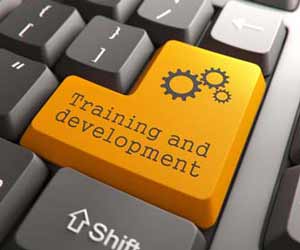Training for the Ski Patrol
Imagine getting a radio call while you are on patrol about a frantic witness reporting how his buddy fell off a cliff on your mountain’s hardest run and he is now unresponsive.
As the first one on scene, you have to ski the steepest and most technical run on the mountain – a run that scares you even when you aren’t loaded down with a full backpack.
But you have to ski it under control, maneuver the cliffs, make it to the patient ASAP, assess his injuries, and transport him to medical help – his life depends on it.

Can you do that?
Ski patrollers don’t need to be the fastest or the fanciest skiers on the mountain, but they do need to be able to ski under control through the worst conditions while transporting sleds and equipment.
Patrolling would be easy if people only got hurt on groomed runs, in on-mountain restaurants, or in blower powder. Unfortunately, many snow sport accidents happen in variable snow, steep terrain, mogul fields, or in trees. A ski patroller needs to be able to ski anywhere on the mountain, in any conditions, and at any time.
— View Ski Resort Job Postings —
Requirements To Be On Ski Patrol
Do you have the skiing skills to master the mountain and become a ski patroller? Every ski patrol varies in their minimal requirements to join a ski patrol, but most follow guidelines similar to these…
- Skiing Ability – Ability to ski the toughest terrain at the ski area in a strong, stable manner
- First Aid – Many resorts require the successful completion of the National Ski Patrol’s Outdoor Emergency Care (OEC) course. Emergency Medical Technician (EMT) training or higher is often accepted as an equivalent. Professional Rescuer (Basic Life Support) CPR certification is often included in an EMT or OEC course.
- Toboggan Handling – To get a patient to medical care quickly, maneuvering a toboggan is essential.
Ski patrols hire qualified people and most start accepting applications and resumes in the spring. Some patrols also arrange on-snow hiring clinics to watch your basic skiing and fitness skills.
In-House Training
Ski patrols understand you will need additional training. Any quality patrol will train you to meet their ski resort’s specific standards.
Most people are hired based on their first aid and skiing skills, even if they lack the snow and avalanche training or resort specific skills, such as lift evacuation and safety procedures.
The amount of training a ski patroller will receive will depend on if they are paid patrollers or volunteers and also on the specific ski resort’s requirements. One ski resort, for example, requires passing an eighty-hour course in winter emergency care and spending six days at the ski area learning to handle toboggans and do avalanche rescues. One- or two-day refresher classes are required each year for first aid certifications.
Physical fitness is also important. Ski patrollers need to be in shape so that they can drag sleds across flat catwalks, log roll overweight guests, pull traction, and be able to ski from first chair to last without becoming exhausted. Patrolling is physically demanding work and your legs must remain strong when skiing over logs down steep terrain in rain-soaked mush.
Larger mountains, resorts with more extreme terrain, or areas with expansive terrain parks may have more intensive training. Each resort will cater to the types of training they need most.
Other Training
To work your way up the ski patrol ranks, you’ll need to expand your knowledge of snow, mountains, and safety. In house training focuses on resort-specific needs, but to build the best resume it is wise to earn nationally recognized certifications for first aid, transportation, snow and avalanche sciences. The following associations, agencies, and organizations can be helpful in expanding your skills and professional level certifications…
- National Ski Patrol
- Professional Ski Instructors of America
- American Institute of Avalanche Research and Education
- Canadian Avalanche Association
- National Registry of Emergency Medical Technicians
There are only a few of many certifying bodies that ski patrollers can use to develop the skills to be a career ski patroller.
Staying Current
As a general rule, you never stop learning when you work and live in the mountains. Ski patrollers need to keep their skills sharp because they need to always be prepared for the unexpected.
Every year, ski patrollers refresh their skills before the season begins. They are constantly training so they can provide the best service and safety possible.
There is no such thing as too much training. Preparation for the worst makes it easier to handle most anything.

